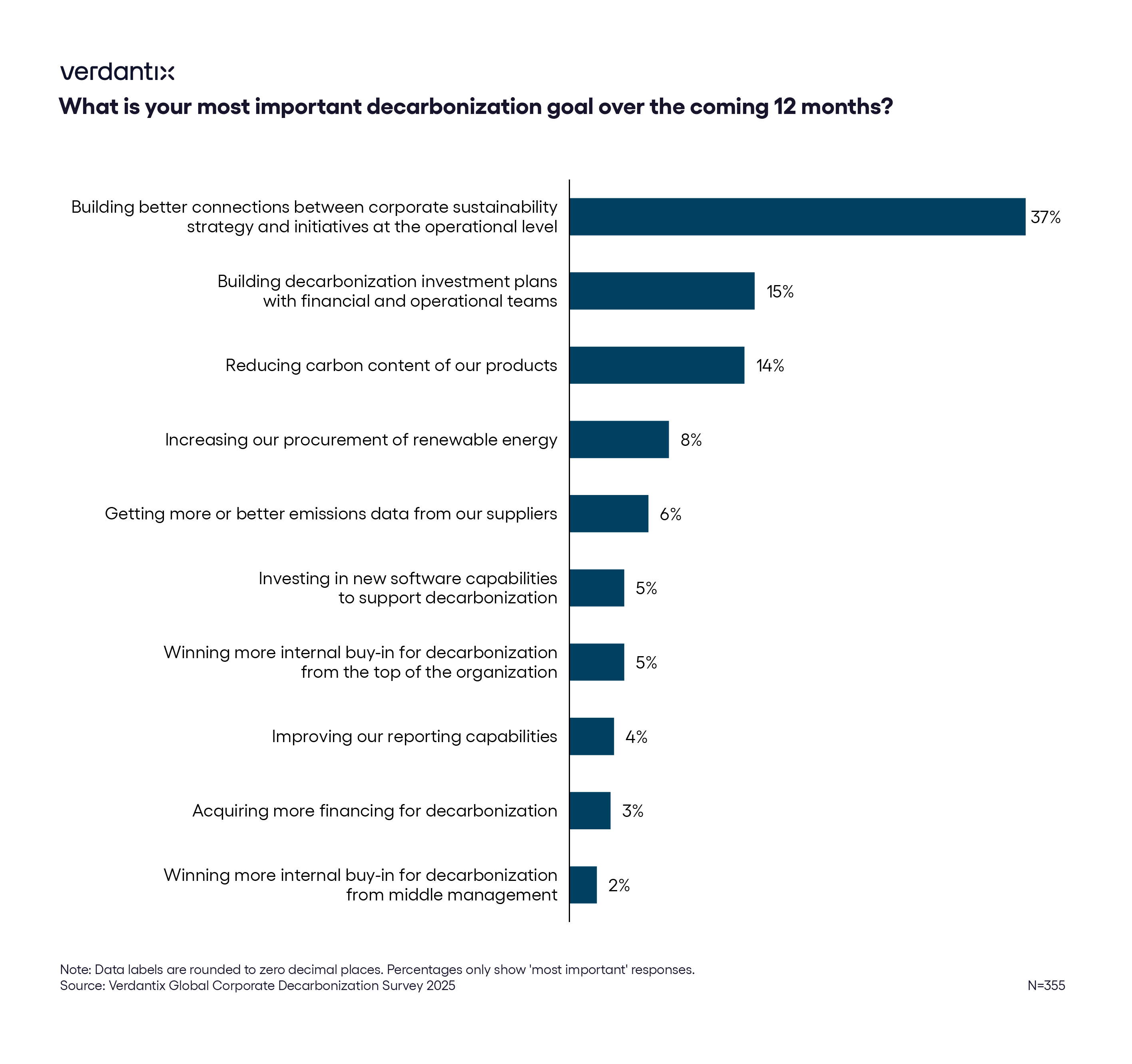Operationalizing Decarbonization: Key Takeaways From The 2025 Global Corporate Survey
Amid ongoing policy shifts, regulatory changes and economic uncertainty, firms are re-evaluating their decarbonization priorities, budgets and technology strategies. To understand how these dynamics are shaping corporate decision-making, Verdantix conducted a global survey of 355 senior stakeholders responsible for decarbonization strategies, spanning six regions and 16 industries. Our research reveals that:
- Most firms are holding steady on climate goals despite mounting challenges
Despite political uncertainty and challenges around technology readiness, most organizations remain committed to their climate goals. Our research reveals that only 15% of leaders have scaled back their targets, citing factors such as financial instability, limited government support, technology gaps, and the impact of recent mergers and acquisitions. Some firms nearing their 2025 interim targets have delayed or even acknowledged missing key milestones. HSBC, for instance, recently pushed its net zero target for operations and supply chain from 2030 to 2050 due to slower-than-expected progress among clients and suppliers. Leaders’ confidence in achieving both short- and long-term goals has declined compared with last year.
- Operational alignment is the top decarbonization priority, but also a major challenge.
Achieving climate goals requires translating high-level targets into concrete operational decisions and capital investments that integrate with day-to-day business activities. Our survey reveals that more leaders rank strengthening the link between corporate sustainability strategies and operational-level action as their top decarbonization priority for the next 12 months than any other goal. However, due to the disconnect between operational teams and corporate sustainability teams, this ambition faces significant hurdles. As a result, many firms struggle with data fragmentation when operational units are not aligned with corporate decarbonization strategies. Nearly 40% report having no consistent method for operational teams to access or interact with climate data, as processes remain highly customized to individual business units.
- Building a strong business case is key to advancing decarbonization strategies.
While just over a quarter of surveyed firms now strongly agree that their corporate decarbonization strategy is fully integrated into business and investment planning, nearly 38% either disagreed or remained neutral when asked whether their business units have the right incentives to support that strategy. To secure additional budget for the coming year, key priorities will include strengthening executive and middle management buy-in, as well as collaborating closely with financial and operational teams to develop actionable investment plans to drive decarbonization.
For deeper insights into corporate decarbonization priorities, key challenges and trends in carbon management software preferences and budgets, read the full report, Global Corporate Survey 2025: Decarbonization Priorities, Budgets And Tech Preferences.

About The Author

Alessandra Leggieri
Industry Analyst




